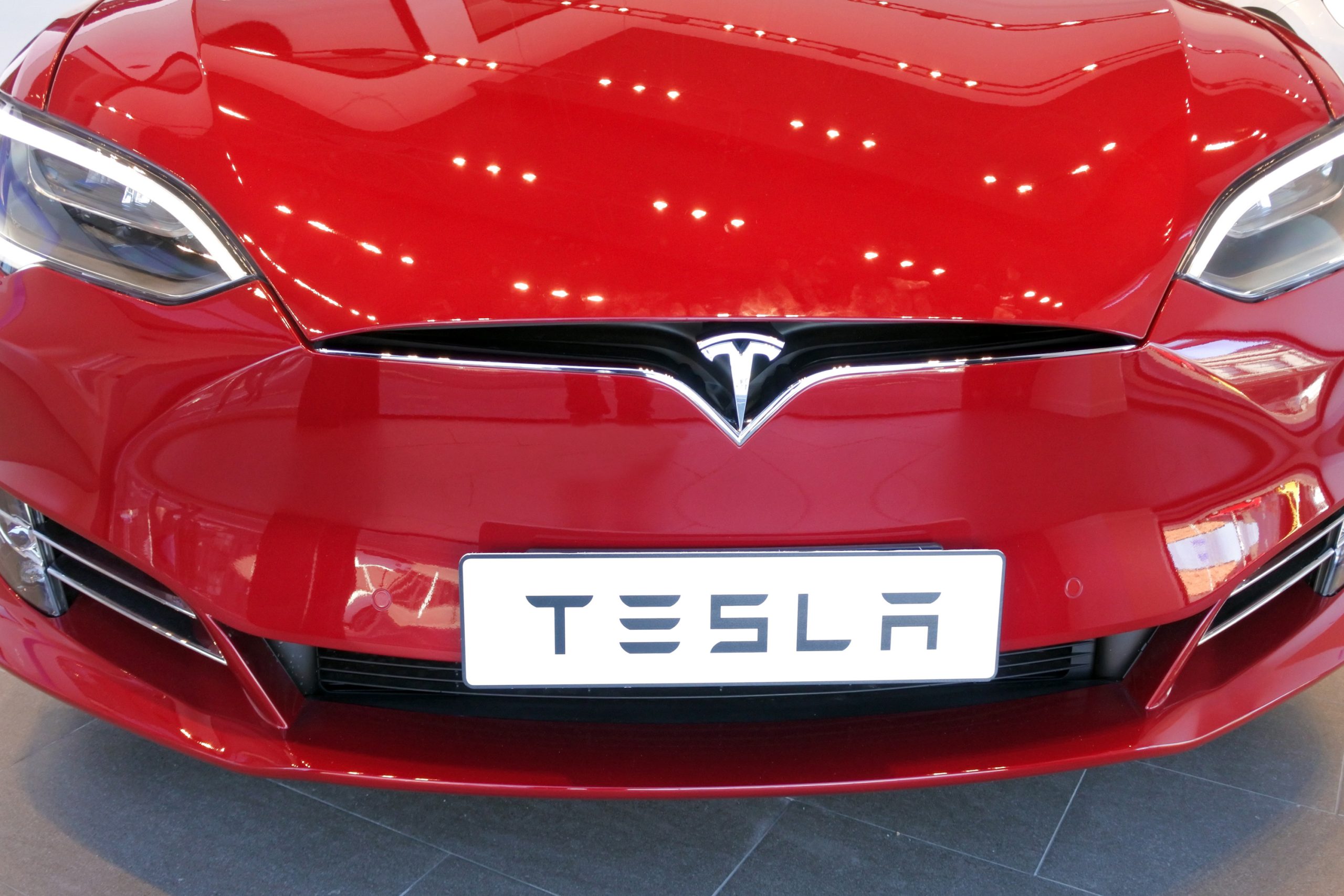 CaryptosHeadlines Media Has Launched Its Native Token CHT.
Airdrop Is Live For Everyone, Claim Instant 5000 CHT Tokens Worth Of $50 USDT.
Join the Airdrop at the official website,
CryptosHeadlinesToken.com
CaryptosHeadlines Media Has Launched Its Native Token CHT.
Airdrop Is Live For Everyone, Claim Instant 5000 CHT Tokens Worth Of $50 USDT.
Join the Airdrop at the official website,
CryptosHeadlinesToken.com
Last Tuesday, we charted the main drivers behind this year’s price moves for TSLA stock. Alongside Musk’s pay package (recently rescinded again) and tariffs against Chinese EVs, it is clear that Donald Trump’s election victory boosted TSLA shares the most.
In early October, just prior to Robotaxi Day, which failed to generate much excitement, TSLA stock was priced at $246.23 per share. Elon Musk’s alignment with the Trump admin had such a strong effect that TSLA stock is now 97% up from that price point, at $487 per share.
The question is, what is the runway for Tesla’s politically-derived premium? Does this mean that regulatory hurdles will be removed from Tesla’s transition into a ride-hailing company as full self-driving (FSD) capability is eventually finalized?
Reminder: at the end of 2023, when TSLA stock was priced at $248.48, Elon Musk reiterated that Tesla could enter the $5 trillion market cap zone by 2030.


For the next four years, Tesla will operate under the umbrella of a friendly Trump admin, which shines a new light on the phrase “executes extremely well.” But what boons should investors expect from Trump’s admin that will bolster Tesla’s bottom line?
Barclays’ analysts have a more conservative take on Tesla’s outlook.
Barclays’ Tesla Valuation Just After Elections
In mid-November, British multinational bank Barclays, founded nearly a century before the US gained independence, raised the stock price of TSLA from $235 to $270 per share. The rating remained the same as “equal weight.”
This was somewhat expected after Tesla substantially beat Q3’s earnings per share (EPS), at $0.62 reported vs $0.46 expected. Moreover, the favorable 34% EPS beatdown surprise was the first one in 2024. Additionally, Barclays’s analysts noted that if EV tax credits are eliminated by 2026, this would boost Tesla sales short-term while hampering domestic EV competition.
After all, Tesla is the most recognizable EV brand in the US, holding 48.9% market share as of August 2024 according to EIA. In turn, the phase out of tax credits could increase Tesla’s market share as people rush to buy EVs before policy expiry.
At that time, Barclays accounted for TSLA premium coming from the election narrative, which Elon Musk injected after endorsing President-elect Trump following the 1st assassination attempt.
Barclays’ Most Recent Tesla Valuation
In the most recent investor note on Wednesday, Barclays retains Tesla’s “equal-weight” rating at the same price of $270, despite that price level now being overshadowed by a 74% value boost to $471 per share.
Barclays’ analysts, led by Dan Levy, place Tesla’s rapid gains in the framework of narrative dominance. One that is similar when TSLA stock gained its previous all-time high of $409.97 in November 2021.
“The decoupling from fundamentals in many ways mirrors the rally we saw from Tesla in 2020-21.”
Tokenist readers already know what this narrative entails, from AI and robots to FSD for robotaxis, all boosted by the world’s most influential social media platform under Elon Musk. In other words, Tesla has returned to the “OG meme stock” status, as Barclays’ analysts put it.
It is also notable that SpaceX’s Mechazilla catch of the massive Starship Heavy booster was a worldwide sensation. And given the fact that Elon Musk only has Tesla as the publicly traded company, much of that enthusiasm was bound to spill over into TSLA stock.
In fact, we noted this very reason in mid-October’s Tesla coverage as to why investors should stock up on TSLA shares. At the time, TSLA stock was priced at $218.47 per share.
However, “Elon premium” became much higher after the elections. The renewed narrative dominance boosted the company’s price to earnings (P/E) ratio from 80x to 145x projection for 2025. This is not far removed from Wall Street Journal’s P/E ratio as well, at 130.62.
WSJ’s average TSLA price target is higher than Barclay’s $270, but still much lower at $294.90 per share. Nonetheless, not all financial firms are this conservative.
CFRA Bullish On TSLA Stock
While Barclays’ analysts believe Tesla to be disconnected from fundamentals due to rekindled narrative dominance, investment research firm CFRA recently raised its TSLA price target from $450 to $560 per share, issuing a “buy” rating.
Just as Barclays noticed in November, CFRA also reasoned that the expected phaseout of US tax credits ($7,500) would benefit Tesla’s market consolidation. Of course, this is something that Musk himself reiterated on multiple occasions.
“I think we should get rid of all credits.”
Elon Musk in December
“Take away the subsidies. It will only help Tesla. Also, remove subsidies from all industries!”
Elon Musk in July
In addition to raising TSLA price target for the second time this month, CFRA also raised Tesla’s 2025 EPS estimate from $3.00 to $3.10. Likewise, for 2026, CFRA raised Tesla’s EPS from $3.75 to $4.00.
The Bottom Line
The right time to invest in TSLA stock was mid-October, as we suggested when TSLA shares were priced at $218.47. Against the current price of $487, this would’ve given investors a 123% return yield.
At present, Tesla stock is clearly in the meme territory, bound for a major price correction just like in previous cycles. However, when that price correction occurs, within the 20 – 30% range at least, investors should consider entering TSLA exposure.
If recent FSD reviews are indicative, Tesla is closer to autonomous driving than ever before. Without federal agencies on its back, such a milestone would inject a recurrent revenue layer to Tesla’s business model. In turn, the next major price correction for Tesla should be anticipated just as positively as Bitcoiners view BTC price volatility.
Have you sold TSLA shares during 2024 when they were protractedly suppressed compared to the 2021 peak? Let us know in the comments below.
Disclaimer: The author does not hold or have a position in any securities discussed in the article.
About the author
Tim Fries is the cofounder of The Tokenist. He has a B. Sc. in Mechanical Engineering from the University of Michigan, and an MBA from the University of Chicago Booth School of Business. Tim served as a Senior Associate on the investment team at RW Baird’s US Private Equity division, and is also the co-founder of Protective Technologies Capital, an investment firm specializing in sensing, protection and control solutions.













